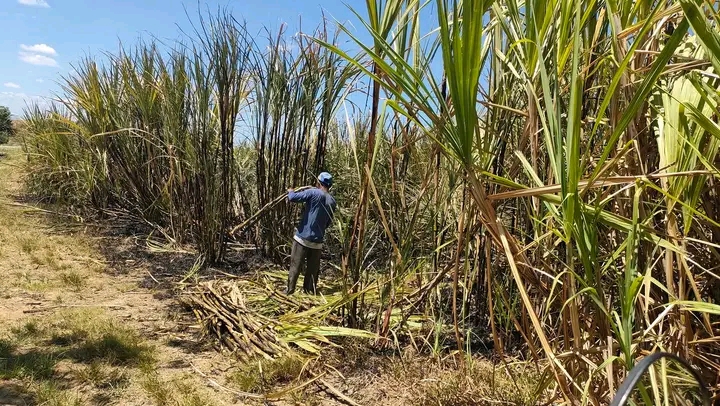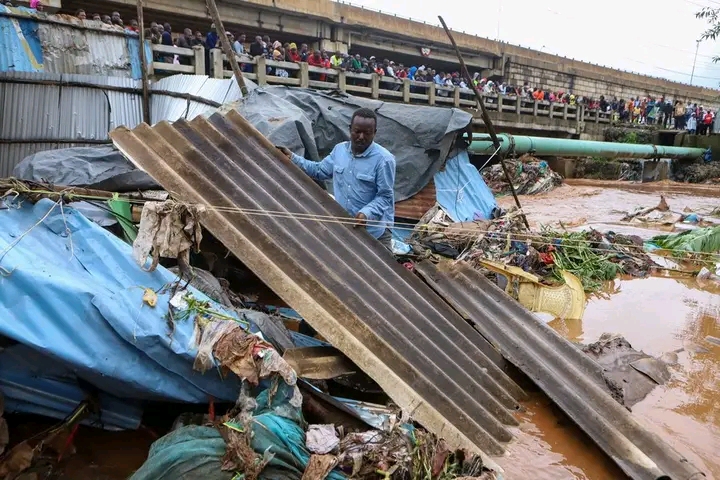Feature
Refugees like any other persons have dreams and visions ; Very often due to the limited and shrinking humanitarian assistance towards refugee education, many tend to miss an opportunity to join higher education.
In Fact a majority never get a chance to join campus and hence are left in blind hopes of not knowing how the future looks , whilst most try other alternative education pathways such as accessing Vocational Training and online courses they still find a hard time to secure job opportunities due employment policies & requirements constraints such as inability to access work or business permits and other financial systems in host countries for example bank accounts & mobile money transfer systems like mpesa (an important money transfer and payment mode in Kenya).
However, refugees suffer constraints to access such services due to their status , many employers fail to recognize refugee documents and even those that recognize are not willing to engage refugees due to systemic economic issues that do not favor displaced persons.
Many refugees, despite being highly skilled and professional in various careers, are forced to do casual jobs with little pay because the formal employment system does not favor them to get worthy jobs nor earn handsome salaries like the host. Others go an extra mile and Graduate with a hope of raising their standards and that of their families but the narrative doesn’t seem to change.
Ishimwe Jean Marie, a refugee advocate living in Kenya,has experienced the hardships of accessing education several times. While in High School, He had to miss some classes due to school fees arrears ; In 2015 particularly , when he was almost sitting for his final secondary school exams, he was sent home for school fees several times and had to miss essential practical lessons which in any case, he needed to understand to be able to undertake his practical exams at ease.His difficulties in accessing education through the ranks from primary to high school and even universities are not a new experience to many refugees across Africa and beyond .
Currently , 5% of refugees are accessing tertiary education globally which is a positive increase from 2019 where the percentage was at 1 . UNHCR, the refugee agency under its education block, has a very hopeful initiative called 15by30 , which in brief seeks to increase the percentage of refugees accessing tertiary education globally from the current 5% to 15% by 2030 . For context , Many refugees cannot join school and higher education due to poor backgrounds, lack of enough income in their families, inability to cater high school fees, unemployment , limited scholarships, lack of certain documents i.e refugee ID among many other underlying issues such as dealing with trauma and stress.
Moreover some refugee women face cultural barriers that limit them to enjoy educational benefits like their male counterparts with extensive issues like early marriages and childhood pregnancies making it hard for them to access education. However, we all know that education transforms communities, and when refugees , internal displaced persons or persons displaced by war are empowered academically, then a hopeful future can be a dream come true.
As a refugee advocate, journalist, and R-SEAT East Africa regional lead, ,Jean is passionate about being part of conversations discussing the inclusion and increase of refugee empowerment & education support policies because he knows it is the right thing to do.
He has partly been a refugee consultant on refugee issues and has consulted in some advisory committees such as the DREEM Youth Advisory Committee for Mastercard & and has also been a committee member in the Accountability & oversight committee by Refugee Point.
His constancy push is to make sure that refugee issues are discussed and better policies are achieved to promote refugee empowerment & development.
Under the Global Compact on Refugees(GCR), the refugee crisis is shifting from a humanitarian approach to a development approach. In Jean’s opinion, Refugees can have fulfilling lives if they are given a chance to access higher education and even the job market after higher education. This empowers the refugees and the economies of the different host countries.
In truth, drawing from ideas and visions that refugees bring resulting from accessing education, it is imperative that education for refugees be invested heavily as it is one of the resources that no one can take away from them .
We must appreciate and start to realize how much is needed of us as a global community of people passionate with regard to inclusive and quality education .
There has been significant efforts where UNHCR in Kenya have been trying to create rapport with schools to support for inclusivity of refugees in local schools .
The humanitarian assistance is shrinking with other priority crises arising, such as climate change and with war in certain countries like Ukraine ,it is the right time to invest in refugee education, capability, and visions as refugees have dreams like anyone.
If they are supported, they can be redefined from people who just depend on aid to actual people who will be helping in resolving the issues they face, i.e., by creating and taking up opportunities. What education does is that it empowers refugees to offer solutions.
Refugee Led Organisations (RLOs) , For instance a Refugee Led Organisation Called Monyqadow in Kenya, recently was able to impact refugee women participation in big decisions and taking up leading roles within their communities as most of them have been abit laid back , the project is known as Breaking the Biases and basically they had a series of support sessions for refugee women where they guided the refugee women on importance of them to be part of the leadership positions and also venturing in business and entrepreneurship opportunities, the team is led a by refugee from South Sudan known as Adhieu Achuil , She is the TRSN Regional Leader in Kenya and an active refugee advocate on education for refugees & women empowerment.
Through access to education, refugees are able to critically think about their issues and provides solutions to the problems they face , currently in Kenya much of the advocacy is led by refugees themselves under this powerful theme of NOTHING FOR REFUGEES WITHOUT REFUGEES and hence whether its speaking against certain discriminations or violation of rights, Refugees leaders and RLO,’s have been on the forefront, even the new Refugee Law 2021 in Kenya that is termed as a renewed hope to helping in the integration of refugees in Kenya, it is refugees who made initial constructive appeals on why it is important for the very – welcoming kenyan people to extend more love by transforming this welcome to proper inclusion in national plans and systems , Kenya and many other countries have made commitments through adopting the GCR and CRRF which if well implemented we can have empowered communities driven with common goals & dreams.
Nobody chooses to be a refugee, it is a cause of inevitable circumstances and hence being inclusive in supporting refugees shows the kind of compassion that Africans and all humans can embrace each other’s problems despite the ethnic origins.
Africans particularly share problems from the past and the term “Refugee” should not be used as a dividing factor that jeopardize our spirit of Africanacity but a call for unity and togetherness.
Refugees and refugee leaders have defied the odds, especially during COVID-19 when many international organizations were closed,refugee-led organizations(RLOs) and initiatives remained open to assist their communities, including hosts and refugees.
Youth Voices Community(YVC), a refugee RLO in collaboration with other RLOs, fundraised over 1500$ and supported the community members with food & PPEs in response to both the economic toll on many refugees and marginalized communities but also as a response to the deadly virus respectively.
This tells us that refugees can still offer more in terms of solutions, ideas, and visions. The Youth Voices Community, last year,launched a data driven campaign titled The Future With Refugees (Wakimbizi) that looks at how covid19 made it even worse for refugees in Kenya & Uganda to access vital services.
The initiative proposed community future recommendations that, if the community & stakeholders could adopt, would contribute to resolving the refugee plight .
However, the disconnect between the development actors and refugees response actors must change for good, to an engagement of cooperative solution based allyship and for there not to be competition between the two types of actors. So, this cooperation with development actors could help refugee advocates and social movements be empowered and supported more in their work.
Consequently when there is such cooperation this enables refugee advocates to have a connection to resources, specific networks, funding, and mentorship that make the dream work. For an effective response to the issues that refugees face, refugees must be at the core of the solutions as they understand the problems they face the most since they experience such problems daily and are more vulnerable to these challenges .
To support the engagement and co-existence of refugees and locals, Jean Marie founded a media Initiative called Nawezaa, a swahili word that means ‘I Can’, which gives a platform for positive & constructive engagements that can amplify the voices of the community & refugee voices and initiatives. For example, In 2021,Nawezaa launched a football tournament called the RUIS Tournament ( Refugee United In Sport ) project, an initiative seeking to unify the locals and refugees in Kenya through sports. Being able to lead Nawezaa gives a new hope for the voices from the ground to be amplified more and possible action to be taken. The core of the Naweza Media is to seek change by engaging in media-related conversations that seek to create and influence the discourse on changing specific policies and challenging certain practices that deny refugees & locals full participation, contribution, and empowerment.
Refugees have more than ever felt determined to see themselves not as a burden but as an important resource, in other words – assets to society who can be productive and can give back to the society that embraces their circumstances.
Refugees are also problem solvers and having gone through the worst, the endurance has taught them to be determined to find the solutions to the issues they face.
Now is an excellent chance for development actors to realise the potential of refugees. Development actors such as the private sector , humanitarian organizations and governments should commit to more empowerment through additional funding towards the education of refugees, i.e additional funding to scholarship programs such as DAFI , MAstercard Scholars Program , WUSC Student Refugee Program or even establishing new ones , supporting the reforms of policies within host countries to allow refugees to work. These are the first steps that will contribute to the renewal of hope for refugees to have a future that they will feel proud to be part of and likely contribute to its development.
Refugees are not a burden but a garden of ideas which with the proper conditions can come to fruition .
By Jean Marie Ishimwe &
McCreadie Andias





